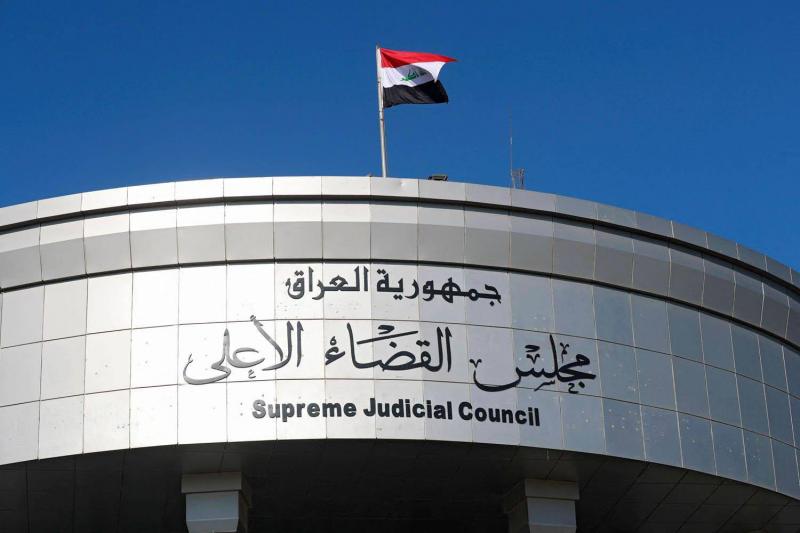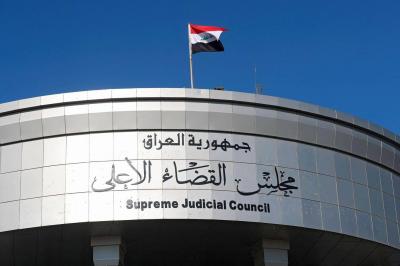The imprisonment of an Iraqi parliament member has sparked widespread controversy following a court ruling against a deputy with parliamentary immunity, without consulting the Parliament regarding a case related to allegations of corruption. The debate arises from two aspects: the legal aspect concerning the trial of a deputy without the Parliament's approval to lift immunity, and the political aspect related to the sentencing of the deputy after he raised corruption allegations against the Iraqi Ministry of Trade.
The Iraqi Constitution states in Article 63 that "a member of the House of Representatives shall enjoy immunity regarding statements made during the session and shall not be prosecuted before the courts for that." In a letter addressed to the President of the Supreme Judicial Council, the acting Speaker of Parliament, Mohsen Al-Mandalawi, referred to the Iraqi Constitution, which states that "a member may not be arrested during the legislative term unless they are accused of a felony and with the approval of the majority of members to lift immunity against them, or if caught in the act of committing a felony."
Al-Mandalawi stated in a statement that the court's decision regarding Deputy Hadi Al-Salami is "subject to appeal," and directed the legal department in Parliament to follow the necessary legal procedures. In response to the controversy, the Supreme Judicial Council issued a clarification regarding Al-Salami's case, who was sentenced to six months in prison and a fine of one million Iraqi dinars (approximately $760) by the Karkh Misdemeanor Court specialized in integrity cases.
The Supreme Judicial Council's statement indicated that "the immunity enjoyed by a member of the Parliament is limited in the event they are accused of a felony."
**What is the Origin of the Case?**
The details of the case trace back to September of last year, when the Ministry of Trade and the Federal Board of Supreme Audit in Iraq filed a case against Deputy Al-Salami following his demands for the dismissal and accountability of Trade Minister Atheer Al-Ghariri over allegations of corruption. At that time, Deputy Al-Salami submitted a request to the Iraqi Prime Minister, Mohammed Shia' al-Sudani, to dismiss the Trade Minister from office due to "committing numerous crimes and administrative violations that harmed public funds during his tenure as General Manager of the General Company for Grain Manufacturing," according to a letter issued by his office cited by local media.
Al-Salami based his claims on a document he stated was issued by the Federal Board of Supreme Audit, indicating violations by the Trade Minister. In this context, the "Al-Sumaria" website reported that the Ministry of Trade contacted the Federal Board of Supreme Audit after Deputy Al-Salami's demands to verify the authenticity of the documents he submitted. According to the same source, which published correspondence between the two parties, the Federal Board of Supreme Audit denied the authenticity of the document attached by Al-Salami, stating it was "forged."
The Ministry of Trade issued a clarifying statement stating that the ruling against Deputy Al-Salami was based on "fabricating and using a document attributed to the Federal Board of Supreme Audit, which was later proven to be forged for the purpose of defamation and harming the ministry's reputation."
In its ruling, the Karkh Misdemeanor Court pointed out that the decision "is subject to appeal," raising questions about the fate of Al-Salami's membership in the Parliament. Legal expert Ali Al-Tamimi stated that the fate of Al-Salami's membership in the Parliament depends on the outcome of the appeal that the deputy is expected to file. He added in an interview with "Shafaq News" that "the current deputy Hadi Al-Salami has the right to appeal the ruling against him of six months' imprisonment within 30 days, and if the decision becomes final, then the process of dismissing his parliamentary membership will take place, and he will be replaced by the candidate with the highest votes in his electoral district."
Beyond the legal debate, the court's decision to imprison Deputy Al-Salami has also provoked a storm of political reactions criticizing the ruling. Lawmakers have called for an emergency session and the interrogation of the Trade Minister regarding this issue, while other members insisted on the necessity of releasing their colleague who has been subjected to the imprisonment order. The head of the "New Generation" bloc in the Parliament, Sarwa Abdul Wahid, stated via the "X" platform that "Parliament is required to interrogate the Trade Minister regarding numerous files related to the ration card" following the "issuance of the imprisonment order against Deputy Hadi Al-Salami."
The government headed by Al-Sudani considers fighting corruption and protecting public funds as priorities and is making extra efforts in this direction, regularly revealing in the media the shortcomings of previous governments.




